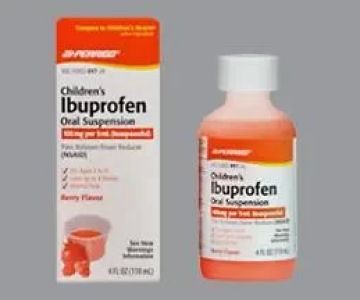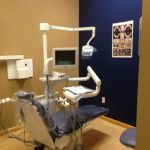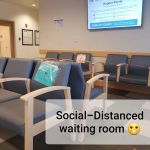Can Children Get Oral Herpes? Understanding the Basics
Oral herpes is commonly caused by the herpes simplex virus type 1 (HSV-1), and it’s often associated with cold sores around the mouth. But can children get oral herpes? The answer is yes. Oral herpes can affect people of all ages, including children, and understanding how it spreads, its symptoms, and treatment options is essential for parents and caregivers.
How Do Children Contract Oral Herpes?
1. Common Transmission Methods in Children
Children often contract oral herpes through direct contact with an infected person’s saliva or sores. This can happen during kissing, sharing utensils, cups, toys, or other objects contaminated with the virus. Because young children often explore objects with their mouths, they are especially vulnerable to transmission.
2. Exposure from Family Members and Caregivers
It’s common for children to contract HSV-1 from parents, siblings, or other close family members who may have active cold sores or even asymptomatic viral shedding, where the virus is spread without visible symptoms. Understanding these risks helps families take precautions to protect their children.
Recognizing Oral Herpes Symptoms in Children
1. Early Signs and Common Symptoms
Symptoms of oral herpes in children can vary widely. Some children may experience mild or no symptoms, while others develop noticeable sores. Typical early signs include:
- Tingling, itching, or burning sensation around the lips or mouth area
- Small, fluid-filled blisters that eventually burst and crust over
- Soreness or pain, especially when eating or drinking
- Fever, swollen lymph nodes, and general irritability in younger children
2. When Symptoms Appear
After initial exposure, symptoms typically appear within 2 to 12 days. The first outbreak is usually the most severe and can last 2 to 3 weeks. Recurrent outbreaks tend to be milder and shorter in duration.
Treatment Options and Managing Oral Herpes in Children
1. Medications to Control Symptoms
There is no cure for oral herpes, but antiviral medications like acyclovir or valacyclovir can help reduce the severity and duration of outbreaks. These medicines may be prescribed for children with frequent or severe episodes, always under a pediatrician or dentist’s guidance.
2. Home Care Strategies
Managing discomfort at home includes keeping the affected area clean and avoiding acidic or salty foods that can irritate sores. Applying cool compresses or over-the-counter topical creams may provide relief. Hydration is also important, especially if the child has difficulty eating or drinking due to pain.
3. Preventing Spread Within the Family
To minimize transmission, caregivers should avoid kissing children on the mouth when cold sores are present, not share utensils or towels, and encourage frequent hand washing. Teaching older children about personal hygiene and avoiding contact with sores can also reduce spread.
Long-Term Outlook and Recurrence in Children
After the initial infection, the HSV-1 virus remains dormant in nerve cells and can reactivate later, causing recurrent cold sores. In children, recurrences are usually less severe, but certain triggers such as stress, illness, or sun exposure may prompt outbreaks. Educating families about these triggers helps manage and reduce future episodes.
Real-Life Story: Emma’s Experience with Oral Herpes
Emma, a 6-year-old from California, developed painful cold sores shortly after starting kindergarten. Her parents were concerned because Emma had never shown any signs before. After a dental visit, her dentist confirmed it was oral herpes and explained how common HSV-1 infections are among children. With antiviral medication and careful home care, Emma’s sores healed, and her family learned ways to prevent future spread.
Emma’s case highlights the importance of early recognition and proper management of oral herpes in children to reduce discomfort and transmission risks.
Preventive Measures for Parents and Caregivers
- Teach children not to share cups, utensils, or personal items with others.
- Avoid close contact, such as kissing on the mouth, with anyone who has active cold sores.
- Encourage frequent and proper handwashing, especially before meals and after touching the face.
- Protect children from excessive sun exposure by using lip balm with SPF.
- Stay vigilant about any signs of oral sores and seek professional advice promptly.
When to Consult a Dentist or Pediatrician
If a child experiences frequent or severe outbreaks, painful sores that interfere with eating or drinking, or if there is uncertainty about the symptoms, it is important to consult healthcare professionals. Dentists and pediatricians can provide accurate diagnosis, recommend appropriate treatments, and help families manage this common viral infection.
Supporting Children with Oral Herpes Emotionally
Dealing with oral herpes can be stressful for children, especially if they feel self-conscious about visible sores. Parents can support their children by educating them in an age-appropriate way, reassuring them about the common nature of the infection, and encouraging healthy habits without stigma.






 Leila Zamiri DDS - Cherry Office4.0 (134 review)
Leila Zamiri DDS - Cherry Office4.0 (134 review) Rapid City Dental Clinic4.0 (90 review)
Rapid City Dental Clinic4.0 (90 review) The Geller Dental Group p.c.4.0 (799 review)
The Geller Dental Group p.c.4.0 (799 review) BGW Dental Group4.0 (292 review)
BGW Dental Group4.0 (292 review) Community Health Center of Snohomish County - Everett-North Clinic4.0 (960 review)
Community Health Center of Snohomish County - Everett-North Clinic4.0 (960 review) 7 Day Dental4.0 (134 review)
7 Day Dental4.0 (134 review) The Importance of Oral Health Education During Pregnancy for a Healthy Pregnancy
The Importance of Oral Health Education During Pregnancy for a Healthy Pregnancy Best Tips for Brushing Your Teeth Properly for Healthy Gums: Essential Techniques for Oral Health
Best Tips for Brushing Your Teeth Properly for Healthy Gums: Essential Techniques for Oral Health Why Skipping Dental Checkups Can Lead to Bigger Oral Health Problems
Why Skipping Dental Checkups Can Lead to Bigger Oral Health Problems Advantages of Porcelain Dental Restorations
Advantages of Porcelain Dental Restorations How Can Diabetes Cause Tooth and Gum Problems? Preventing and Managing Oral Health Issues
How Can Diabetes Cause Tooth and Gum Problems? Preventing and Managing Oral Health Issues Healthy Habits for Promoting Good Oral Health and Hygiene: Tips for a Healthy Smile
Healthy Habits for Promoting Good Oral Health and Hygiene: Tips for a Healthy Smile